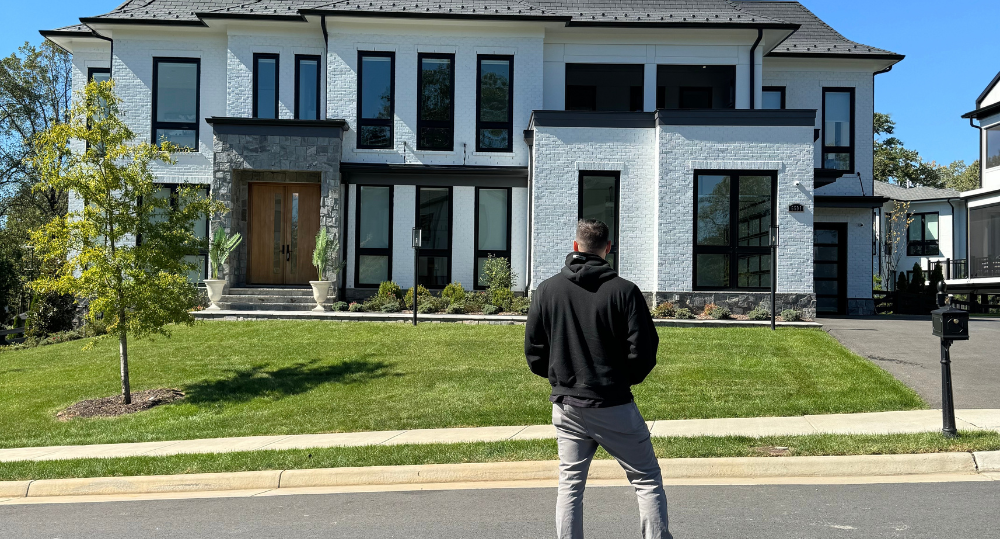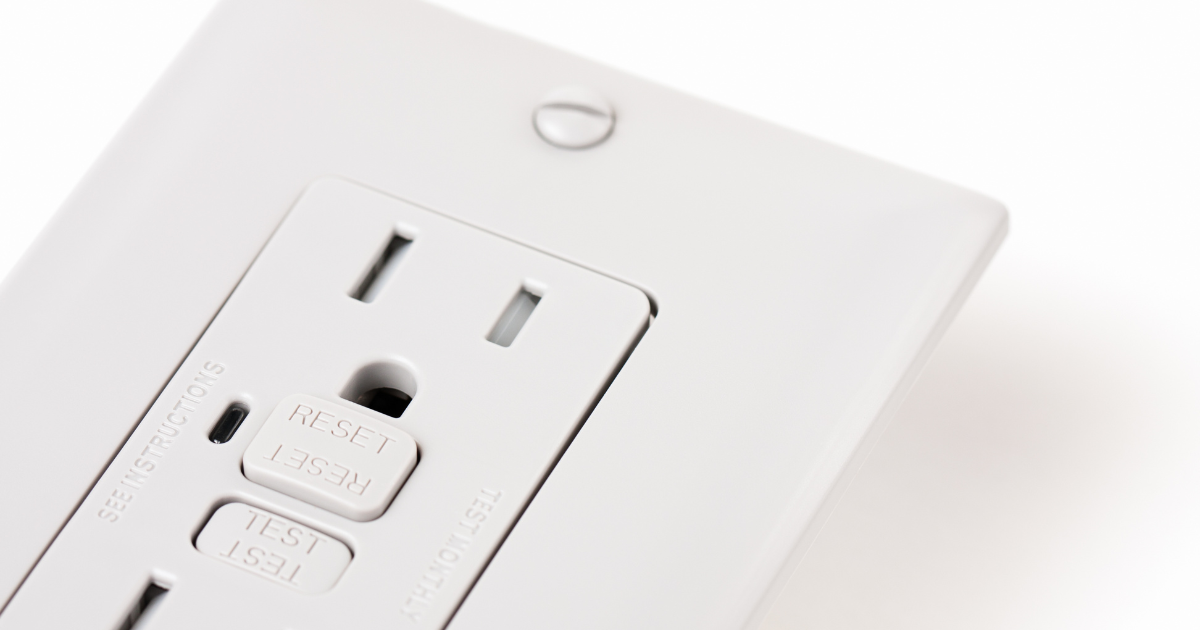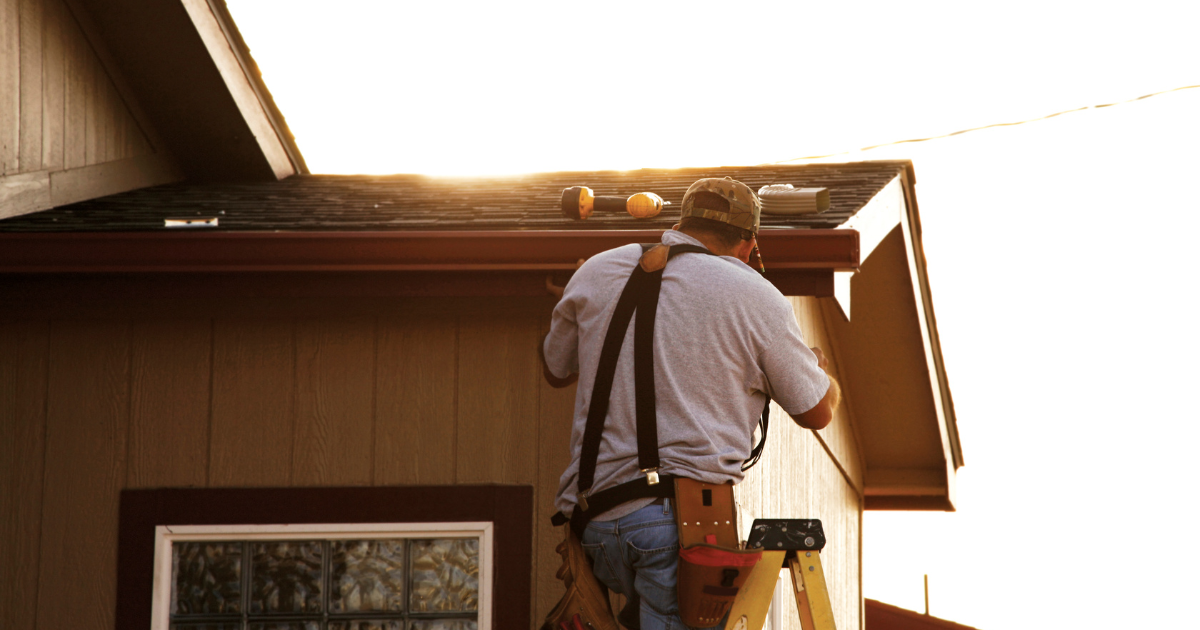Are you in the market for a brand-new home? If so, you may be wondering where to start. This New Construction Homes Guide is designed to help Florida home buyers like you navigate the new construction home buying process. From finding builders and communities to the new construction inspections we\’ve got you covered. So, let\’s get started!
Key Takeaways
-
- Some homebuyers may choose a new-construction home because they want a low-maintenance lifestyle or a chance to customize their home to their own taste.
- Homebuyers should be prepared for a new-construction home to be more expensive than resale homes in the area and for the loan closing to take longer.
- With a new-construction home, make sure you don\’t skip the home inspection to ensure the developer delivers what they promised. This will help avoid any stressful surprises down the road.
What is a New Construction Home?
If you\’re thinking of buying a new construction home in Orlando, there are a few things you should know.
A new-construction home is a house that was just built and has not been owned or lived in by anyone else. These homes are often sold by developers or builders, who then sell them to home buyers. In some cases, buyers may have the option to work with the builder to customize their new home to their liking. For example, they may be able to choose the finishes, fixtures, and appliances.
To buy new construction, you\’ll usually need to find financing and work with your lender to get the property appraised. You\’ll also need to thoroughly review the contracts for purchase, so you understand what you\’re getting for your money. Additionally, because the home is new, you may have the opportunity to customize or make some design decisions as part of the purchase process.
Once you\’ve closed on the property, the home is yours! You\’ll have the opportunity to bring a home inspector to the property before moving in to ensure that the property meets the standards of sturdy and safe home construction.
Buying a new construction home can be an exciting and rewarding experience. With a little research and preparation, you can find the perfect home for you and your family in Orlando, Florida.

Pros and Cons of New Construction Homes
Buying a new construction home has its pros and cons, but ultimately, it\’s up to the buyer to decide what\’s most important to them. If you\’re looking for a move-in ready home with all the bells and whistles, then buying new might be the way to go. However, if you\’re looking for more negotiating power or a certain floor plan, then an existing home might be a better option for you. Regardless of which route you choose; you\’re already doing your research ahead of time to ensure that you can make an informed decision.
[av_tab_container initial=\’1\’ position=\’sidebar_tab sidebar_tab_left\’ boxed=\’border_tabs\’ alb_description=\’\’ id=\’\’ custom_class=\’\’ template_class=\’\’ av_uid=\’av-2j536p\’ sc_version=\’1.0\’]
[av_tab title=\’Pros\’ icon_select=\’no\’ icon=\’ue800\’ font=\’entypo-fontello\’ custom_id=\’\’ av_uid=\’av-la1yjk2u\’ sc_version=\’1.0\’]
- The home will come with builder warranties
- Built more energy efficient and to modern codes
- Builders often offer buyer incentives
- Mutiple customization options are available.
[/av_tab]
[av_tab title=\’Cons\’ icon_select=\’no\’ icon=\’ue800\’ font=\’entypo-fontello\’ custom_id=\’\’ av_uid=\’av-la1yjvb5\’ sc_version=\’1.0\’]
- It can take 6 to 12 months to build, if there are no delays
- Upgrades can lead to overextending costs.
- Not having an agent may put you at a disadvantage
- Possibility of problems with materials and methods
[/av_tab]
[/av_tab_container]
Pros Explained
The obvious pro of buying a new construction home is that everything is brand new. From the appliances to the roof to the windows, everything is under warranty and will likely stay in good condition for many years to come. Additionally, new construction homes are usually more energy-efficient than older homes, which means lower utility bills. And since they\’re built to code, they often have features that older homes don\’t—like sprinkler systems and GFCI outlets.
If you’re working with a reputable builder, they should also offer some type of warranty on the home. This is something that can give buyers peace of mind in knowing that if anything goes wrong, they won’t be stuck footing the bill. Of course, it’s always important to read the fine print on any warranties offered by the builder.
Another pro of buying a new construction home is that you often have more negotiating power with the builders than you would with the seller of an existing home. This is because builders are motivated to sell their homes and they\’re often willing to make concessions in order to do so. For example, you might be able to get a lower price or free upgrades if you\’re willing to negotiate.
Customization is a great way to make your new home uniquely yours. There are many options that are available with builders from the exterior to the interior of the home. From pools and fences, there are many options available from the builder. This can include the exterior, additional electrical outlets and lighting, along with choices in flooring, countertops and more. However, these options can either raise or lower the cost of the home.
Cons Explained
While there are some great advantages to buying a new construction home, there are also some potential drawbacks that you should be aware of. One of the biggest is that it can take longer for your new home to be completed than if you were buying an existing home. This means that you may have to live in temporary housing for awhile or make other arrangements.
Another thing to keep in mind is that while you may have more control over customizing a new home, this also means that unexpected costs could pop up during the building process. If you’re not careful, these costs can quickly add up and exceed your budget. That’s why it’s so important to work closely with your builder and make sure that you are both on the same page when it comes to what your budget is and what kind of features you want in your new home.
One of the biggest cons of buying a new construction home is that you might not have as much negotiation power as you think. This is why it\’s always a great option to involve a realtor to negotiate on your behalf. While it\’s true that builders are motivated to sell their homes, they often build in a profit margin that gives them room to negotiate—but not much room. Additionally, while builders are usually willing to make some concessions, they\’re not usually willing to budge on the big stuff like price or floor plan. So, if you\’re set on a certain floor plan or price range, buying a new construction home might not be the best option for you.
Another con of buying a new construction home is that everything is brand new including all the problems that come along with being brand new. For example, it\’s not uncommon for newly constructed homes to have plumbing or electrical problems. Additionally, since everything is so new, it can be hard to find someone who knows how to fix any problems that do arise. This isn\’t necessarily a dealbreaker, but it\’s something to keep in mind before signing on the dotted line.
FAQ About New Construction Homes
[av_toggle_container faq_markup=\’faq_markup\’ initial=\’0\’ mode=\’accordion\’ sort=\’\’ styling=\’av-elegant-toggle\’ colors=\’\’ font_color=\’\’ background_color=\’\’ border_color=\’\’ toggle_icon_color=\’\’ colors_current=\’\’ font_color_current=\’\’ toggle_icon_color_current=\’\’ background_current=\’\’ background_color_current=\’\’ background_gradient_current_direction=\’vertical\’ background_gradient_current_color1=\’#000000\’ background_gradient_current_color2=\’#ffffff\’ background_gradient_current_color3=\’\’ hover_colors=\’\’ hover_font_color=\’\’ hover_background_color=\’\’ hover_toggle_icon_color=\’\’ size-toggle=\’\’ av-desktop-font-size-toggle=\’\’ av-medium-font-size-toggle=\’\’ av-small-font-size-toggle=\’\’ av-mini-font-size-toggle=\’\’ size-content=\’\’ av-desktop-font-size-content=\’\’ av-medium-font-size-content=\’\’ av-small-font-size-content=\’\’ av-mini-font-size-content=\’\’ heading_tag=\’\’ heading_class=\’\’ alb_description=\’\’ id=\’\’ custom_class=\’\’ template_class=\’\’ av_uid=\’av-9ck3l\’ sc_version=\’1.0\’ admin_preview_bg=\’\’]
[av_toggle title=\’How long will it take to build my new home?\’ tags=\’\’ custom_id=\’\’ av_uid=\’av-la0k1bwp\’ sc_version=\’1.0\’]
It can vary between six and twelve months. There are a lot of unknown reasons that time can change and when you reserve your home.
[/av_toggle]
[av_toggle title=\’How much will it cost to build a new home?\’ tags=\’\’ custom_id=\’\’ av_uid=\’av-la0k21bv\’ sc_version=\’1.0\’]
New home constructions typically cost $100 – $200 per square foot to build. However, the average cost shifts upward for more luxurious accommodations.
[/av_toggle]
[av_toggle title=\’What is the process for building a new home?\’ tags=\’\’ custom_id=\’\’ av_uid=\’av-la0k2ueb\’ sc_version=\’1.0\’]
- Plans and Permitting
- Site Work and Masonry Phase
- Framing
- Plumbing, Electric & HVAC
- Insulation, Drywall & Flooring
- Landscaping & Exterior Aspects
- Final Close Out
[/av_toggle]
[av_toggle title=\’What are some things to consider when building a new home?\’ tags=\’\’ custom_id=\’\’ av_uid=\’av-la0k3spx\’ sc_version=\’1.0\’]
- Location
- Lot Size & Layout
- Room Height
- Wiring and Outlet Placements
- Materials Used
[/av_toggle]
[/av_toggle_container]
How To Shop for a Newly Constructed Home
When shopping for a new home, it\’s important to keep in mind the differences between model homes and existing homes. With a model home, you\’re getting a preview of what the home will look like once it\’s finished. The finishes and fixtures may not be finalized yet, so it\’s important to ask about what is included in the purchase price and what will be an additional cost.
Clarify the Price You Pay vs. the Price Advertised
Always clarify with the builder or developer what is included in the purchase price and what costs extra. Sometimes what\’s advertised is different from the actual sale price, and it\’s important to know exactly what you\’re getting into. You don\’t want any unwelcome surprises after signing on the dotted line.
If you\’re touring model homes, always take note of the finishes, materials, and appliances that are used and compare them to your must-haves list. You may find that something you initially thought was a deal-breaker isn\’t so bad after all. On the other hand, if you\’re buying a home that\’s not complete, you\’ll need to be even more diligent in terms of what\’s negotiable and what\’s not.
\”When purchasing a new construction home, it is important to be aware that the advertised price is not what you will end up paying. Many of the amenities seen in a model home are extras that will need to be paid for.\” Lana More, real estate agent at Keller Williams Winter Park, told HOMESHAPE Inspections via email.
For example, some developers might charge extra for upgraded features like granite countertops or stainless steel appliances, while others may include them as standard features in the base price. It\’s important to know these things going in so you can budget accordingly.
Determine Your Timeline to Purchase
When you\’re ready to buy a new home, it\’s important to be aware of the purchasing timeline. Even if you find a home that you like, it may go under contract before you have a chance to purchase it. If this happens, you\’ll need to decide how long you can wait for the property to be finished. Many builders advertise which lots are avaialable on their website and inside the community sales office.
It\’s a good idea to start looking into new construction as early as possible, to make sure that there will be inventory available when you\’re ready to move. This way, you can avoid any delays in your timeline. Lastly its recommended you reach out to a local real estate agent before you walk into the sales office. Most builders will not let you involve an realtor after you have walk through the door initially when visiting for the first time. Relators are excellent resources in helping you find new developments and builders.
Gain an Understanding of the Development and the Location
When it comes to new construction housing developments, there are a few key factors to consider – most importantly, the location. Homebuilders will often choose locations that are close to key amenities and urban areas, without being too far removed from convenient transportation options and shopping.
For many new homebuyers, the local school district is an important factor in the decision-making process. If you have young children, be sure to research the quality of schools in the area before committing to a new home. Other important considerations include the size and type of housing available, as well as any luxurious amenities that might be included in the development (e.g., a golf course or swimming pool).
When choosing a new homebuilder, it\’s important to select one that specializes in the type of home you\’re looking for. If you\’re interested in an affordably priced starter home, there are many builders who focus on this market segment. On the other hand, if you\’re hoping to build a custom, luxury home, it\’s important to find a builder with a good reputation for quality workmanship.
In the end, the decision of which homebuilder to choose is a personal one. However, by keeping these key factors in mind, you can be sure to find the perfect new construction housing development for your needs.
Conduct a New-Construction Home Inspection
If you\’re in the process of buying a new construction home, you may be wondering if you need to get a new-construction home inspection. The answer is, it depends. While it is true that newly built homes haven\’t had time to age and develop problems, there is always the potential for shoddy workmanship – especially if the homebuilder cut corners to save money. And even though new construction homes are supposed to be inspected by the city or county, most home buyers do not know what to look for and city or county inspectors can miss crucial items. There are three types of home inspections you can get: pre-drywall inspection, new construction inspection, and 11-month warranty inspection.
The pre-drywall inspection is typically done before the home\’s walls are covered with drywall. The inspector will check the framing, electrical, plumbing, and HVAC systems to make sure they meet the code and are installed correctly.
The new construction inspection is done once the home is completed but before you move in. The inspector will check all the same systems as the pre-drywall inspection, plus things like doors, windows, stairs, and railings.
The 11-month warranty inspection is done during the first year you own the home. This inspection is to check for any problems that may have arisen since you moved in. So which inspection do you need? If you\’re buying a new construction home, you should at least get the new construction inspection. And if the homebuilder offers an 11-month warranty, you should take advantage of it and get the 11-month warranty inspection.
Buying a new construction home is a big investment, so you want to make sure you do everything you can to protect your investment. Getting a new-construction home inspection is one way to help ensure that your new home is built correctly and is up to code.
The Final Walkthrough
If you\’re in the process of buying a new home, it\’s important to have a walk-through with the homebuilder before finalizing the purchase. This walk-through is your chance to ensure that everything is in order and that there are no hidden issues with the property. Typically, your local home inspector will provide a detailed report that includes all the items they recommend be addressed by the builder.
Here are some things to keep an eye out for:
- Open all windows, doors, and cabinets to check the fit.
- Make sure there aren\’t any cracks or missing weather strips.
- Look for missing spots in the paint or other finishes.
- Check that all faucets and appliances are working properly.
- Inspect the landscaping around the house to make sure it slopes away from the foundation. This will help prevent water damage to the property.
- If any special requests or upgrades were promised, make sure they are present during the walk-through.
Use this opportunity to create a list of requested repairs or modifications. This will help ensure that your new home is in perfect condition before you move in.
How To Finance New Construction
So, you\’ve finally decided to take the plunge and build your dream home. Congratulations! Now comes the fun part: financing your new construction. While many aspects of the construction loan process will be similar to an existing home\’s mortgage application, one of the big differences is that many developers of new-construction homes will have a preferred lender with whom they work. You don\’t have to choose them, but there may be valuable incentives for doing so.
For instance, using a preferred lender may trigger a developer incentive such as an upgrade to the home, or the lender may be easier to work with if there are construction delays because they may offer you a longer interest-rate lock.
One of the easiest ways to find financing for new construction is to check with your bank. It might have loan programs or assistance for first-time buyers or new homes that can lower down payment requirements.
Applying for New Home Construction Loans
Now that you know some good places to start looking for financing, let\’s get into the nitty gritty of applying for a construction loan. When you\’re ready to begin the formal application process, you\’ll need to gather some documentation. This is standard practice for any kind of mortgage application, but it\’s worth mentioning since it can be easy to forget when you\’re dealing with something as exciting (and slightly overwhelming) as building a brand new house!
Here are some of the things you\’ll need:
- Tax returns for the past two years
- W2 forms from your employer for the past two years
- Pay stubs from the past month
- Bank statements from the past few months
- A list of all your debts and assets
- A copy of the purchase contract or builder\’s agreement
In addition to gathering all these documents, you\’ll also need to have a clear idea of what kind of loan you\’re looking for. Do you want a fixed-rate loan? An adjustable-rate mortgage? There are pros and cons to both, so it\’s important to do your research and choose the option that makes the most sense for your financial situation. Once you\’ve done that, you\’re ready to start shopping around for lenders!
Types of Assistance for Home Loans
There are multiple options when it comes to finding assistance for first-time buyers or new homes that can lower down payment requirements or help you find better rates. Here are some options you may way to look at as a Florida homebuyer.
Florida Homebuyer Loan Program
The Florida Housing Finance Corporation\’s Homebuyer Loan Program offers 30-year fixed-rate mortgages to first-time homeowners through participating lenders. The minimum credit score is 640, and borrowers must complete a homebuyer education course. Maximum purchase prices and incomes vary by county.
Florida Hometown Heroes Housing Program
The Florida Hometown Heroes Housing Program makes homeownership affordable for eligible frontline community workers such as law enforcement officers, firefighters, educators, healthcare professionals, childcare employees, and active military or veterans.
Federal Housing Association Loans (FHA Loans)
FHA loans are a great option for buyers who might otherwise have trouble getting approved by conventional lenders. These types of mortgages will help you buy your home, and they come with some awesome features that can\’t be found anywhere else!
- FHA loans are issued by private lenders, but they\’re backed by the Federal Housing Administration.
- You can get an FHA loan with a down payment of as little as 3.5%.
- You don\’t need a high credit score to get an FHA loan.
- You can get an FHA loan that covers the cost of renovations or repairs through the FHA 203(k) program.
Additional Florida Assistance Programs
- The Florida Housing Finance Corporation has a down payment assistance program, the Florida Assist (FL Assist), that provides up to $10,000 in down payment assistance on FHA, VA, USDA, or conventional loans. The deferred second mortgage has a 0% interest rate.
- There is also the Florida Homeownership Loan Program Second Mortgage (FL HLP) that provides $10,000 at a 3% rate payable over 15 years in monthly payments.
- The minimum credit score for both programs is 640, and borrowers must complete a homebuyer education course.
New Construction Home Resources
[av_blog blog_type=\’posts\’ categories=\’6\’ link=\’category\’ blog_style=\’blog-grid\’ content_length=\’content\’ contents=\’title\’ date_filter=\’\’ date_filter_start=\’\’ date_filter_end=\’\’ date_filter_format=\’yy/mm/dd\’ period_filter_unit_1=\’1\’ period_filter_unit_2=\’year\’ offset=\’0\’ conditional=\’\’ bloglist_width=\’\’ columns=\’3\’ preview_mode=\’auto\’ image_size=\’portfolio\’ items=\’3\’ paginate=\’yes\’ img_scrset=\’\’ lazy_loading=\’disabled\’ alb_description=\’\’ id=\’\’ custom_class=\’\’ template_class=\’\’ av_uid=\’av-34m6z5\’ sc_version=\’1.0\’]
We\’ve compiled a list of some essential resources for home buyers
Federal Programs to Help You Pay for a Home
NAHB How to Choose a Home Builder
What You Need to Know Before Closing








